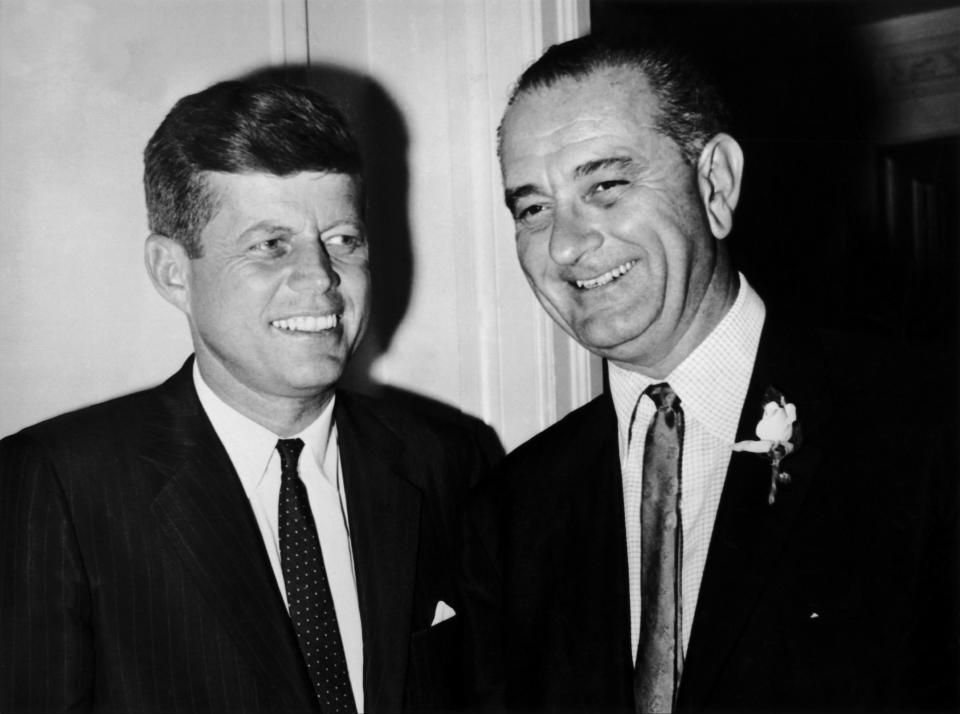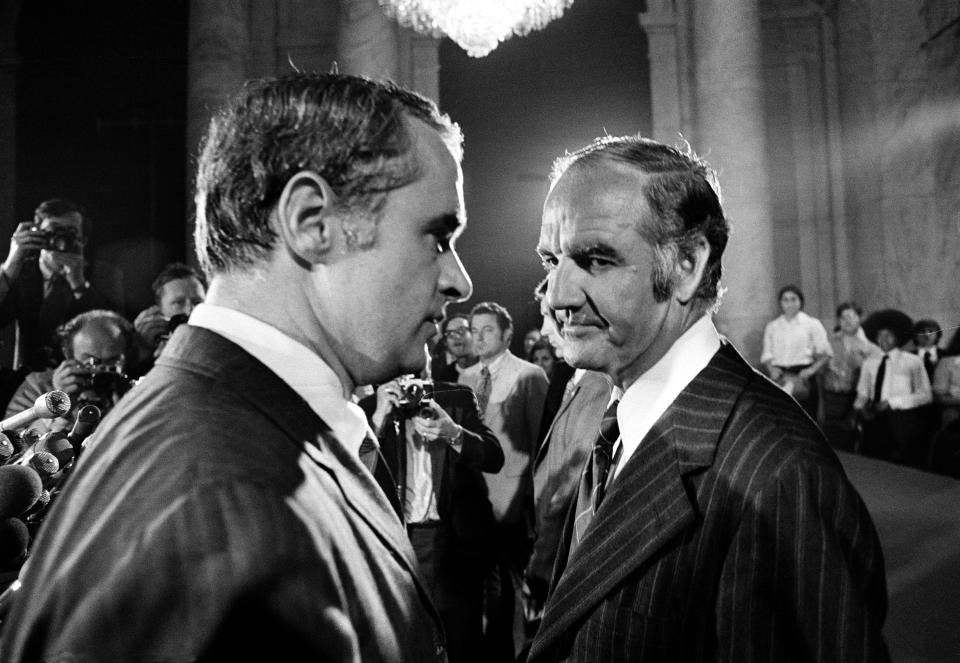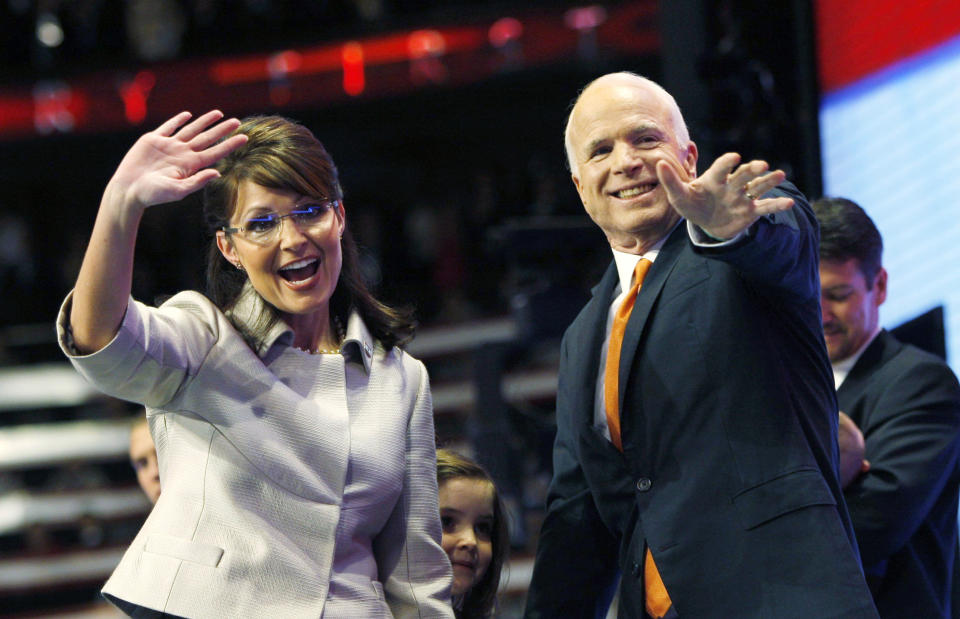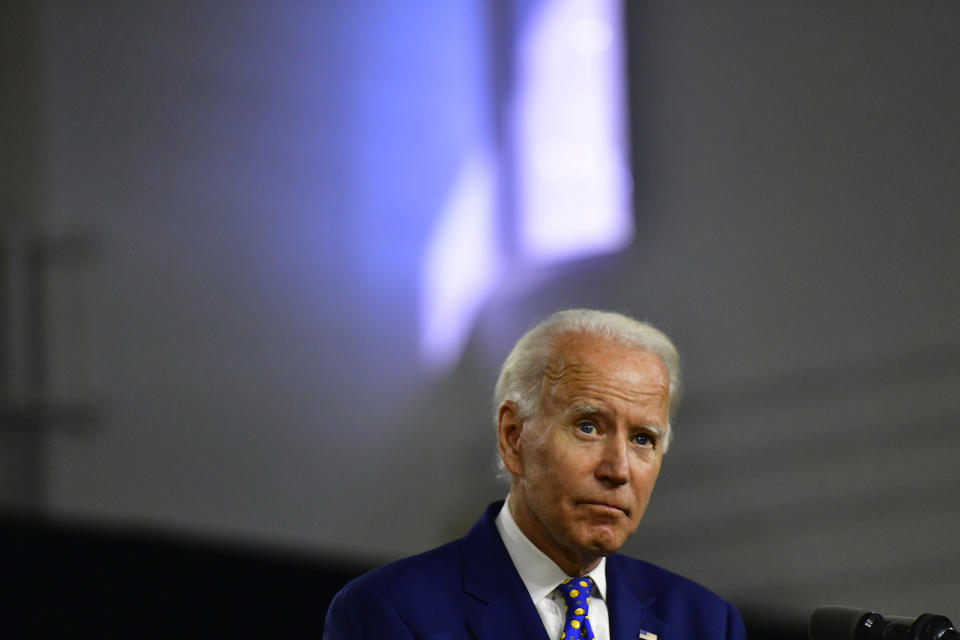A guide to guessing Joe Biden's VP pick
Trying to predict who Joe Biden will choose as his running mate is, if you’re a certain type of person, a fun parlor game in this otherwise dreadful summer. But it’s also a recognition that the pick matters more than it would in a normal year, considering Biden’s age and his opponent.
Guessing these things was a little easier in the past, when the main criterion for a vice presidential candidate was where they came from. For most of American political history, geographical balance was seen as essential for any winning ticket, a way for a candidate to show that he wouldn’t be beholden to the interests of any one region of the country.
John F. Kennedy’s decision to tap Lyndon Johnson to fill out the 1960 Democratic ticket, for example, had much to do with the fact that LBJ was a Southerner and, more specifically, a Texan.

Kennedy, a Massachusetts liberal, felt it was necessary to nominate someone like Johnson, whom he disliked on a personal level, to keep the South in Democratic hands. Johnson, meanwhile, desperately wanted the presidency, and felt that accepting the job of vice president — a job that, on some level, he knew he would hate — would be his best chance of getting there. Both were right.
Today the art of choosing the right vice presidential candidate is much more complex. Regional balance is no longer a priority, having been pushed aside by more urgent matters of symbolism, stance and representation.
Before he was his party’s presumptive nominee, Joe Biden promised he would choose a woman to be his running mate. This will be only the third time in American history that a woman was chosen to be the vice presidential candidate of a major party, after Geraldine Ferraro in 1984 and Sarah Palin in 2008.
Having decided that he would select a woman, Biden has a number of other considerations to mull. Should Biden, who has spent nearly five decades in politics as an instinctive moderate, select a progressive like Elizabeth Warren to bolster his left flank? Or, given the importance of minority voters to the Democratic Party and this summer’s widespread protests over racial justice, would it be a mistake to go with yet another all-white ticket?
Another wrinkle is Biden’s age. He’ll be 78 on Election Day, which means the moment he takes power he’d be the oldest person ever to enter the Oval Office. He has also kept the door open to serving only one term, and if that’s the case, his vice president could have a huge advantage over any competitors in the 2024 primaries.
He’s selecting, in other words, not only someone who could take over for him at a moment’s notice but also the person who might lead the party into the next decade.

Biden, having been a fairly powerful vice president himself, surely has very well considered ideas about what he wants and what he doesn’t want. But a lot can go wrong when choosing a running mate, even when the stakes aren’t quite this high. When George McGovern, the Democratic nominee in 1972, tapped Missouri Sen. Thomas Eagleton, the results were disastrous; not only had Eagleton anonymously disparaged McGovern to a reporter but he also had a history of mental illness that he’d kept secret.
Once that history came to light, McGovern initially defended Eagleton before replacing him with Kennedy in-law Sargent Shriver. A few months later, McGovern lost to Richard Nixon in a 49-state landslide.
Then there’s Palin, who was supposed to shore up John McCain’s credibility among conservatives but wound up damaging his campaign after she gave a series of disastrous interviews. Picking Palin also helped fuel questions about the 72-year-old McCain’s age, with Democrats arguing that the Alaska governor would not be up to running the country if suddenly elevated to the presidency.
Biden, needless to say, does not want to open himself up to similar criticism.
Before he was talked into choosing Palin, then an obscure figure, McCain had wanted to go with his close friend Joe Lieberman, a conservative Connecticut Democrat who was Al Gore’s running mate in 2000. Whether such a ticket could have been successful is anyone’s guess, but there’s a real advantage in opting for a vice presidential contender the candidate knows well, if only because it provides some insurance against Eagleton-esque and Palin-esque surprises.

Avoiding surprises is likely a major concern for Biden and his team. For one thing, he’s been steadily widening his lead in the polls over Trump for months. Candidates who are winning tend to be cautious — you don’t want to risk losing that momentum.
Another challenge for Biden is that, if it’s perceived that he’s interested in serving only one term, he would become a lame duck as soon as he’s inaugurated. And when the president is a lame duck, ambitious vice presidents tend to start campaigning for the big job, which could lead to all sorts of unnecessary turbulence and difficulty getting an agenda through Congress.
So he needs someone who’s loyal, and the best way to ensure loyalty is to choose someone the candidate already knows and trusts.
Among the choices Biden is reported to be considering, former national security adviser Susan Rice is the only one thought to be in his inner circle of friends and close advisers. Should Rice become the Democratic nominee for vice president, her established personal and professional relationship with Biden, in addition to her lengthy and accomplished résumé, would no doubt be a reason she got the nod. And, as a Black woman, she would add diversity to the ticket.

But regardless of Biden’s pick, we have no way of knowing how powerful she would be. Dick Cheney had a tremendous influence over George W. Bush’s administration, while LBJ spent his nearly three years as vice president far removed from any real decision making.
What we do know, however, is that Biden’s choice will be among the most scrutinized in recent history. Not only will he have to deliver someone who seems like she could lead the country on day one; she’ll also need to have the right mix of professional, personal and ideological bona fides to appease, or at least avoid alienating, a political coalition that stretches from the far left to erstwhile Republican suburbanites.
Or maybe not. Vice presidential selections sometimes defy any grand strategic thinking, so we shouldn’t discount the possibility that Biden, having promised to announce a decision next week, simply picks a name and runs with it.

Something similar happened in 1980. Ronald Reagan, the Republican nominee, had been trying to get former President Gerald Ford to join his ticket. The match, for a time, looked preordained in the minds of some political observers.
But with the GOP convention underway, Reagan and his team, having tired with what they perceived as Ford’s dithering, shrugged and settled on someone else: George H.W. Bush, the former congressman and CIA chief who had come in second in the primaries. That last-minute and somewhat impulsive choice changed the course of American history, creating the conditions necessary for not only Bush to become president but also, by extension, his eldest son.
And who could’ve predicted that?
_____
Read more from Yahoo News:


